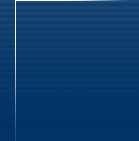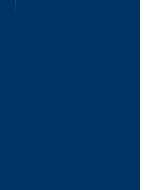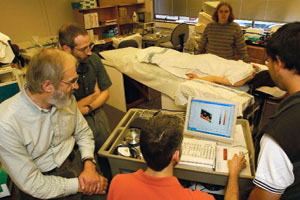
| Education | |||||||||||
|
Working Medical Engineers Sharpen Their Skills |
|||||||||||
|
Even after years of working in the professional world, one may find that his or her hunger for knowledge in one’s field is not yet satisfied.
Beach wrote a survey and sent out envelopes with five to 10 surveys in each to various biomedical engineering companies in Seattle. Out of the 175 surveys, 105 came back. The survey described a possible evening program taking four years to complete. “Most said they would take a course like this,” Beach said. At that time, Dr. Lee Huntsman was chair of bioengineering and, according to Beach, said he supported looking into the program. “With that information I sketched up a curriculum of 12 quarters of work,” Beach said. Beach then went to UW Extension where David Szatmary, Vice Provost of UW Educational Outreach, expressed interest. “I thought it was an innovative program that obviously met a need in the medical engineering community,” Szatmary said. The program was then reviewed by an advisory committee of high-ranking officers of local biomedical engineering companies who said they wanted a course in the physics of medical imaging. Then it went to faculty review. Two more courses were added: medical chemistry and a course on the biology of cells. Finally, the curriculum was complete. “The curriculum is designed to be interesting and relevant to helping solve health delivery problems in the world,” Beach said. The first certificate program in medical engineering was offered in 1996. The first graduate was Natalya Peskin in 2000. Peskin came to the United States with a degree in electro-mechanical engineering from Moscow Transport University. “I got a lot of physiology and anatomy background that was important and entirely new to me,” Peskin was quoted in a brochure about the medical engineering program. In 2001, the second graduate was Barbara Burke. Burke came from the University of Wisconsin with a B.S. degree in metallurgical engineering. According to the brochure, she initially viewed the M.M.E Program as a bridge between her engineering background and the medical sciences she encountered in her work. The program offers four evening certificate programs: Basic Medical Sciences, which is 18 credits, and Biosensors and Biomaterials, Medical Diagnostics, and Medical Devices and Commercialization, which are 12 credits each. It also offers an Evening Master of Medical Engineering Degree, which combines all four certificate programs. According to Beach, 31 students graduated from the masters program. Seventy-six students are currently enrolled in the program. “I see no reason why the program shouldn’t grow,” Szatmary said. “I think it will continue to be successful.” Beach earned a B.S. degree in electrical engineering from the UW in 1965. He went on to earn an M.S. and a Ph. D., both in chemical engineering from University of California Berkeley. He also earned an M.D. in medicine from UW in 1976. Beach has taught ultrasound physics at Bellevue Community College and Seattle University for 20 years. He has more than 100 publications in the areas of ultrasound technology and the use of ultrasound in precision epidemiology. He also holds 11 U.S. patents and has won The UW Distinguished Contributions to Lifelong Learning Award, which honors faculty who taught or designed courses, seminars or workshops aimed at working adults and other nontraditional students, and who received excellent teaching evaluations for that work. |
|||||||||||
|
© 2003 - 2004 UW Medicine
Maintained by UW Health Sciences and Medical Affairs News and Community Relations Send questions and comments to drrpt@u.washington.edu |
|||||||||||


